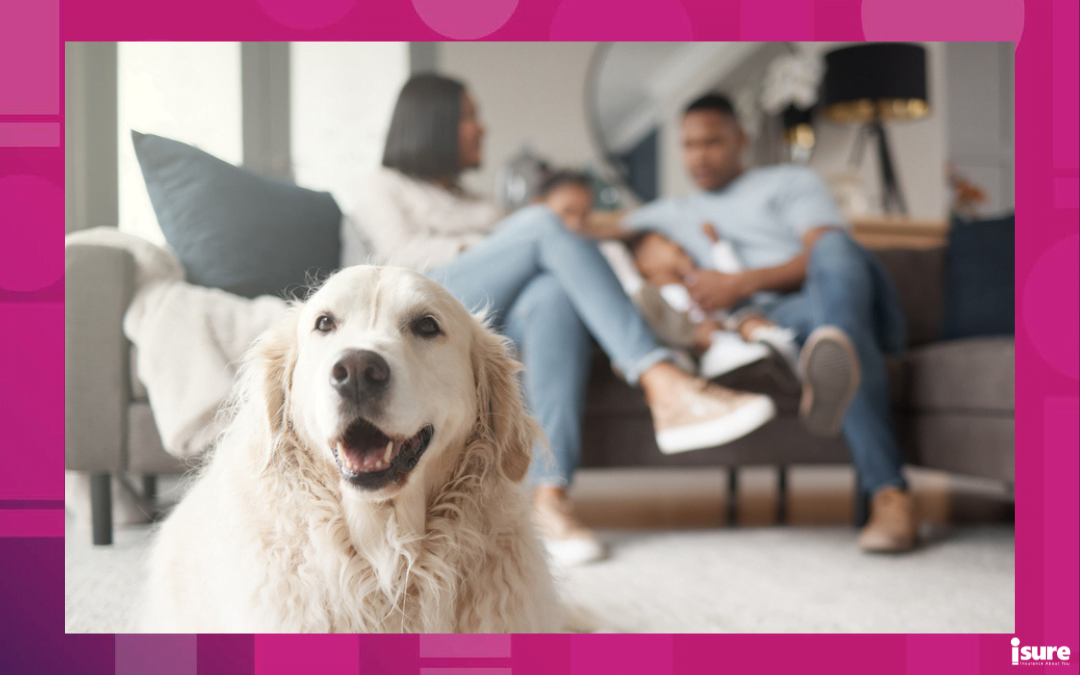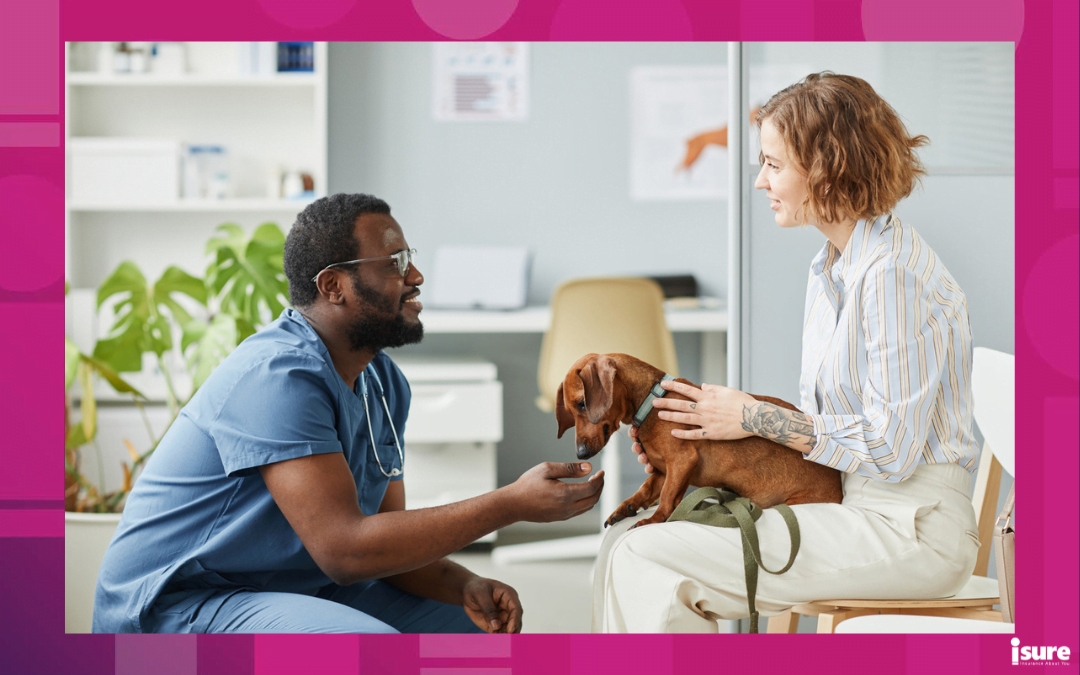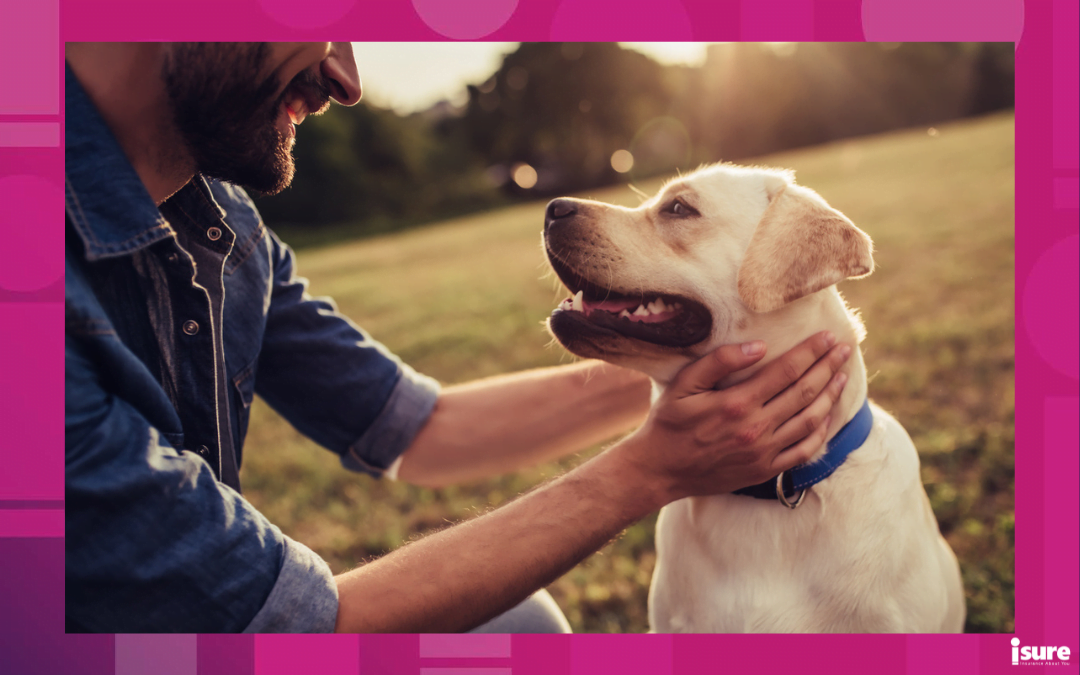No matter who you ask, any dog owner will tell you that their furry friend is an extremely important part of their life. However, it is no secret that a new companion in your family is a massive amount of responsibility. Additionally, it can be very costly for you and your family, and we’re not just talking the initial investment. Bedding, accessories, pet bills and medication can add up to a lot, from common expenses throughout the dog’s life to the initial payments you must pay for the dog. We know how stressful it can be! Luckily, isure has you covered with everything you need to know when it comes to the cost of owning a dog.
How much does it cost to own a dog?
When it comes to owning a dog, your payments can be separated into three categories. Upfront purchases, purchases made throughout the dog’s lifespan and surprise costs. This is an easy way of figuring out how expenses will work throughout your time as a dog owner. Below, we have listed a few examples of each category. Keep in mind, this can differentiate depending on the dog breed you have and the age you brought them into your family. For example, poodles and French bulldogs are currently some of the most expensive dogs you can purchase. Let’s discuss further below.
1. Upfront expenses
When you first get a dog, there are a bunch of one-time expenses. These can be pretty daunting since they are typically on the pricier side. Luckily, when these purchases are done, they are one and done. In total, new dog parents in Canada can expect to spend anywhere between $1,395 to $4,270, depending on where the dog is from and the type of breed. Some more fees you should be aware of are below:
- Adoption fees: $145-$320
- Spay or neuter surgery: $430-$1,500
- Microchip: $50-$100
- Initial vet exam and vaccines: $430-$645
Remember, though a microchip may not be mandatory, it is extremely important to remember that initial vet exams and vaccinations for your dog are crucial when it comes to having it lead a healthy life. Once you have everything sorted, it is important to also look into buying your first batch of equipment for your dog’s new home. Some of these items include a leash, collar, bowls, crate, dog bed, toys and some treats!
2. Annual essential purchases
Once you finally have your new pup settled into your home, it is time to think about the essentials it will need throughout its lifetime. Remember, food, visits and other pet essentials can add up over time. In Canada, the average dog owner will spend about $460-$3,140 a year on pet essentials! As a result, it’s crucial, for both yourself and your pet, that you determine whether a pet can fit into your daily expenses. Some examples of what you’ll be spending your money on are as follows:
- Food: $215-$1,340
- Flea and tick prevention: $65-$270
- Poop bags: $35-$480
- Treats: $35-$480
- Toys: $30-$750
- Annual checkup: $85-$130
It is important to keep in mind that many of these will differentiate depending on your dog. For example, your dog’s breed, age and appetite may mean spending more or less than the average person each year.
3. Surprise costs
Although these surprise costs may not be needed for every pet owner, it is important to be prepared in case something happens. These scenarios are generally unexpected, but can be crucial when it comes to your pet’s health and wellbeing. Roughly, these can range from $2,050 to $5,600, depending on your dog and the specific situation. Some examples of surprise costs include:
- Emergency vet bills: $215-$1,615
- Wellness vet bills: $305-$665
- Dental cleaning: $540-$755
- Grooming: $50-$200
It is also important to note that there are many optional expenses you may choose to purchase. These include pet insurance, hiring a dog walker, or paying for training/behaviour sessions.
Savings tips for pet owners
Remember, as a dog owner, there are many different ways to save when it comes to caring for your furry friend. Many of these are beneficial to the wellbeing of your dog as well. Dogs are an expensive investment, so you should never risk the wellbeing of your dog to save a few dollars. For example, it is important to keep in mind that most vet offices are closed on the weekend. With this in mind, it is a good idea to avoid trying new foods or new games before then, to avoid them being hurt or sick while waiting rooms are closed. Another good way to save money is by training your dog with kibble as a small reward. It is a lot cheaper than purchasing costly treats! You can also adjust your dog’s meals to make up for any extra kibble they may have had throughout the day.
We hope this helps you decide on whether pet ownership is right for you. Happy dog parenting!




